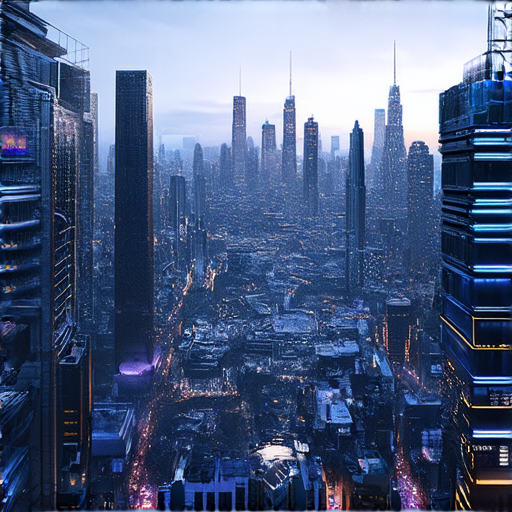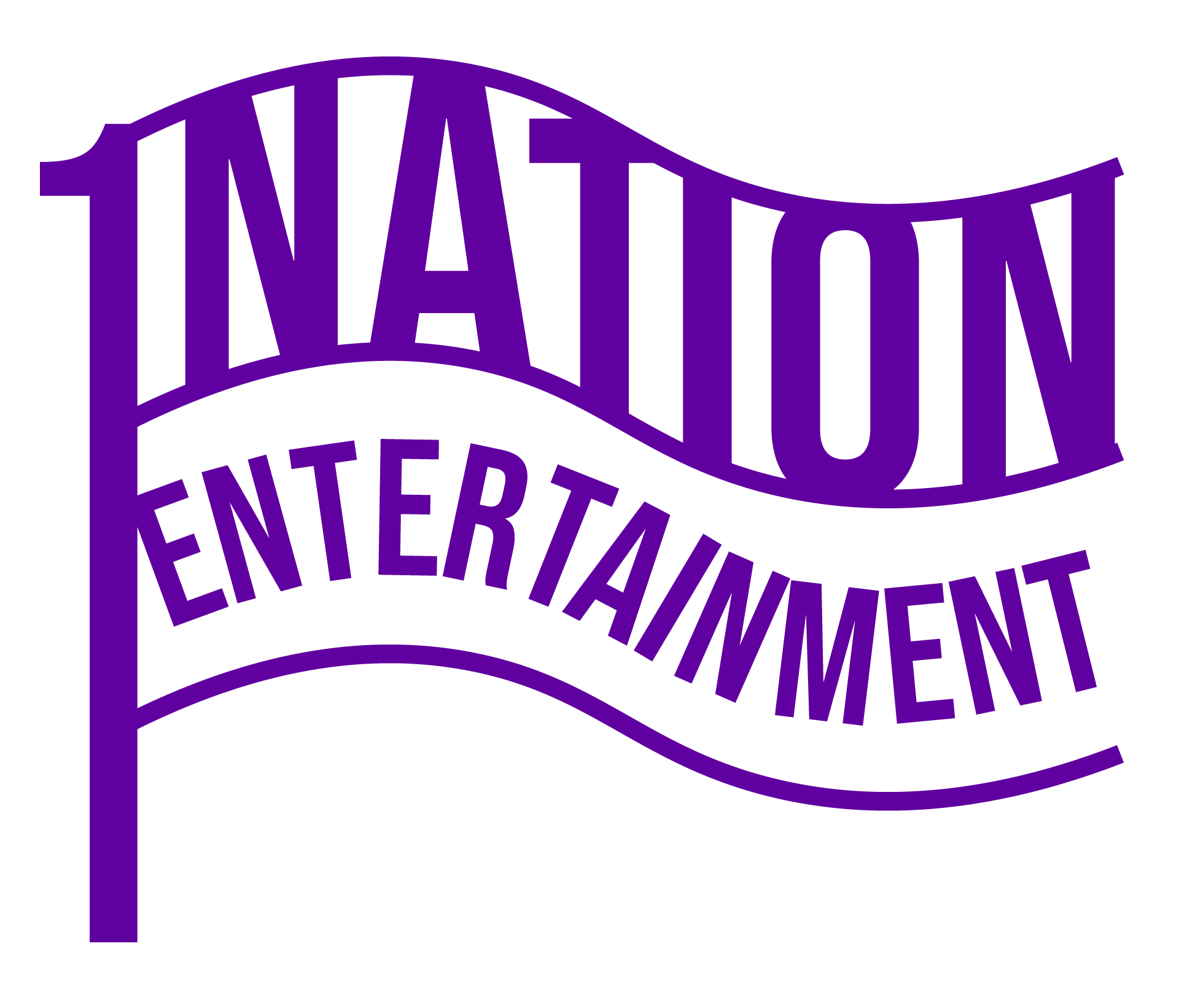The music industry has undergone significant transformations in recent years, driven by shifting consumer behaviors, technological advancements, and emerging trends. As we navigate the ever-changing landscape of the music world, it’s essential to stay informed about the latest developments and their impact on artists, labels, and fans alike. From the rise of streaming services to the growing influence of social media, the music industry is evolving rapidly, presenting both opportunities and challenges for those involved.

The State of the Music Industry
The music industry is undergoing significant transformations, driven by technological advancements, shifting consumer behaviors, and evolving business models.
- Rise of Streaming Services: Platforms like Spotify, Apple Music, and Tidal have revolutionized the way people consume music, offering vast libraries, personalized playlists, and discovery features.
- Digital Distribution: Online platforms like DistroKid, CD Baby, and TuneCore enable artists to distribute their music globally, bypassing traditional record labels and physical distribution channels.
- Social Media and Influencer Marketing: Social media platforms, YouTube, and influencer marketing have become essential tools for artists to promote themselves, engage with fans, and build their personal brand.
- Livestreaming and Virtual Concerts: The COVID-19 pandemic accelerated the adoption of livestreaming and virtual concerts, allowing artists to connect with fans remotely and generating new revenue streams.
- Merging of Genres and Crossover Collaborations: The blurring of genre boundaries and increased collaborations between artists from different genres have led to innovative sounds and expanded audiences.
- Increased Focus on Mental Health and Artist Well-being: The music industry is prioritizing artist well-being, mental health support, and fair compensation, acknowledging the importance of creators’ welfare in driving artistic excellence.
- Growing Importance of Independent Labels and Artists: Independent labels and artists are thriving, offering alternative routes to success and challenging traditional industry structures.
- Advancements in Music Production and Technology: Advances in software, hardware, and production techniques continue to democratize music creation, enabling artists to produce high-quality content with greater ease and affordability.
- Evolution of Music Education and Training: Online courses, workshops, and degree programs are emerging, addressing the need for musicians to develop skills in areas like entrepreneurship, marketing, and technology.
- Shifting Business Models and Revenue Streams: The industry is exploring new revenue streams, such as subscription-based services, merchandise sales, and experiential events, to supplement traditional album sales and touring income.
In conclusion, the music industry is experiencing a transformative era, marked by technological innovation, changing consumer habits, and evolving business models. As the landscape continues to shift, artists, labels, and industry professionals must adapt and innovate to thrive in this dynamic environment.
The Evolution of the Music Industry
The music industry has undergone significant changes in recent years, driven by technological advancements, shifting consumer behaviors, and emerging business models.
- Diversification of Labels: The traditional major-label dominated landscape has given way to a proliferation of independent labels, boutique labels, and artist-owned imprints.
- Rise of Streaming Services: Platforms like Spotify, Apple Music, and TikTok have revolutionized the way people consume music, offering unparalleled access to diverse content and personalized recommendations.
- Changing Business Models: The shift towards subscription-based services, pay-per-stream models, and social media-driven revenue streams has disrupted traditional revenue streams and forced industry stakeholders to adapt.
- Growth of Live Events: Concerts, festivals, and experiential events have become increasingly popular, generating significant revenue and fostering connections between artists and fans.
- Increased Focus on Artist Development: With the rise of streaming and social media, artists now have greater control over their careers, allowing for more nuanced and authentic creative expression.
- Emergence of New Talent: The democratization of music creation and distribution has enabled fresh voices and styles to emerge, enriching the musical landscape and challenging established norms.
- Evolution of Marketing Strategies: Artists and labels now employ innovative marketing tactics, leveraging social media, influencer partnerships, and immersive experiences to connect with audiences and promote their work.
- Growing Importance of Data Analysis: The ability to collect, analyze, and act upon data has become crucial for understanding audience behavior, optimizing marketing efforts, and driving business decisions.
- Shift towards Independent Artists: The decline of major-label dominance has led to a surge in popularity among independent artists, who can now reach global audiences through digital platforms and social media.
- Increased Focus on Fan Engagement: Artists and labels now prioritize building strong relationships with fans, fostering loyalty, and encouraging participation in the creative process.
- Expansion of Music Genres: The internet and social media have facilitated the discovery and promotion of niche genres, allowing for greater diversity and inclusivity within the music industry.
- Growing Role of Technology: Advances in AI, VR, and AR are transforming the music-making process, enabling new forms of creativity, collaboration, and fan engagement.
In conclusion, the music industry continues to evolve at a rapid pace, driven by technological innovation, shifting consumer behaviors, and emerging business models. As we move forward, it will be essential for industry stakeholders to remain adaptable, innovative, and committed to delivering high-quality content and exceptional fan experiences.

The Problems in the Music Industry Today
We’re living in a rapidly changing world, and the music industry is no exception.
-
Plagiarism and Copyright Infringement
-
Diversity and Representation
-
Sustainability and Environmental Impact
-
Mental Health and Burnout
-
Monetization and Fair Compensation
With the rise of social media and streaming platforms, it’s easier than ever for artists to share their work and connect with fans. However, this increased accessibility has also led to a surge in plagiarism and copyright infringement.
Many artists struggle to protect their intellectual property, leading to lost revenue and damaged reputations. To combat this issue, we need to educate artists about the importance of registering their work and taking steps to prevent piracy.
The music industry has long been criticized for its lack of diversity and representation. From the homogenous playlists on popular streaming services to the predominantly white male-dominated panels at music festivals, there’s still much work to be done.
By promoting diverse voices and perspectives, we can create a more inclusive and vibrant music scene that reflects the complexity and beauty of our global culture.
The music industry has a significant environmental impact, from the production and transportation of physical albums to the carbon footprint of touring and festival production.
To mitigate these effects, we need to adopt sustainable practices and technologies that reduce waste and emissions. This might involve investing in eco-friendly tour buses, reducing plastic usage at festivals, or implementing recycling programs for merchandise.
The music industry is notorious for its demanding schedule and high pressure to perform. Many artists struggle with mental health issues, burnout, and anxiety, which can have serious consequences for their well-being and creativity.
By prioritizing mental health support and self-care, we can create a healthier and more resilient music ecosystem that values artist well-being above commercial success.
The music industry’s complex web of royalties, licensing agreements, and distribution deals can leave artists feeling confused and underpaid.
To address this issue, we need to simplify the monetization process, increase transparency around royalty payments, and advocate for fair compensation for creators.
By acknowledging and addressing these challenges, we can build a more equitable, sustainable, and thriving music industry that benefits everyone involved.

The Future of the Music Industry
We’re living in an exciting era for music, with technological advancements, digitization, and innovative business models driving unprecedented growth.
- Streaming Services: Platforms like Spotify, Apple Music, and Tidal have revolutionized the way we consume music, offering vast libraries and personalized playlists.
- Digital Distribution: Online platforms like DistroKid, CD Baby, and TuneCore enable artists to distribute their music globally, reaching a broader audience.
- Social Media: Social media platforms like Instagram, TikTok, and YouTube have become essential tools for artists to promote themselves, share their work, and engage with fans.
- Livestreaming: Technologies like live streaming and virtual concerts allow artists to connect with fans remotely, creating new revenue streams and opportunities for collaboration.
Emerging Trends and Opportunities
- NFTs and Blockchain Technology: Non-fungible tokens (NFTs) and blockchain technology are transforming the music industry, enabling secure, transparent, and decentralized transactions.
- AI-powered tools are helping artists create new sounds, automate tasks, and analyze data to inform creative decisions.
- The music industry is shifting towards eco-friendly practices, reducing carbon footprints, and promoting environmentally responsible touring and production methods.
- Efforts to increase diversity and inclusion in the music industry are gaining momentum, leading to a more representative and vibrant cultural landscape.
Key Players and Innovators
Conclusion
The future of the music industry is bright, with emerging technologies, innovative business models, and a growing focus on sustainability and diversity. As we continue to evolve, it’s essential to stay adaptable, open-minded, and committed to creating a more inclusive and equitable music ecosystem.
Will AI Replace Musicians?
We’ve been hearing about the rise of artificial intelligence-generated music, but will it eventually replace human musicians? As someone who’s passionate about the music industry, I’d like to weigh in on this topic.
- The short answer is no, AI won’t replace human musicians anytime soon.
- While AI-generated music has made significant strides in recent years, it still lacks the emotional depth and creativity that human musicians bring to the table.
Why AI Won’t Replace Human Musicians
- Emotional Connection: Human musicians have the ability to connect with their audience on a deeper level, conveying emotions and telling stories through their music. AI-generated music, on the other hand, can come across as sterile and lacking in emotional resonance.
- Creativity and Originality: Human musicians have the capacity to think outside the box and push boundaries, creating unique sounds and styles that reflect their individual perspectives. AI-generated music, while capable of mimicking certain styles, often relies on pre-existing templates and algorithms.
- Authenticity: Human musicians bring their own experiences and perspectives to their music, making it authentic and relatable. AI-generated music, by contrast, can sound formulaic and lacking in authenticity.
The Role of AI in Music
- Ai-generated music can be a valuable tool for musicians, helping them to explore new ideas and experiment with different sounds.
- AI can also assist with tasks such as composition, production, and even live performances, freeing up human musicians to focus on what they do best – creating music.
Conclusion
In conclusion, while AI-generated music has its place in the music industry, it won’t replace human musicians anytime soon. The emotional connection, creativity, and authenticity that human musicians bring to their music are essential components that AI-generated music currently lacks.
As we move forward, it’ll be exciting to see how AI continues to evolve and impact the music industry. One thing is certain, though – human musicians will always have a special place in our hearts and ears.

The Next Big Genre of Music
We’re living in an era where music is constantly evolving, and new genres are emerging every year.
- Fusion genres, which blend elements of folk, electronic dance music (EDM), and hip-hop, are gaining popularity.
- These genres are redefining what we consider mainstream music, making the future of music an exciting and unpredictable landscape.
Trends Shaping the Future of Music
- Folktronica: A fusion of folk and electronic music, characterized by its soothing melodies and intricate beats.
- Hyperpop: A genre that combines elements of pop, electronic, and hip-hop music, often featuring catchy hooks and experimental production techniques.
- Emo-Rap: A subgenre of hip-hop that incorporates emotive lyrics and melodic flows, often addressing themes of mental health and personal struggle.
Why These Genres Are Gaining Popularity
These genres are resonating with listeners due to their unique soundscapes, lyrical honesty, and ability to evoke emotions.
- Cultural Relevance: These genres often reflect the cultural and social issues of our time, making them relatable and authentic.
- Experimentation: Artists are pushing boundaries and experimenting with new sounds, styles, and techniques, keeping the music fresh and exciting.
- Diversity: These genres celebrate diversity and inclusivity, showcasing a wide range of perspectives and experiences.
What’s Next?
As these genres continue to evolve, we can expect to see new subgenres emerge, incorporating elements of traditional music and modern production techniques.
- Afro-Futurism: A genre that blends African rhythms and instrumentation with futuristic electronic production.
- Latin Trap: A fusion of Latin American rhythms and hip-hop, often featuring catchy hooks and energetic beats.
Conclusion
The future of music is bright, with new genres and subgenres emerging every year.
By embracing experimentation, diversity, and cultural relevance, we can expect to see even more innovative and exciting music in the years to come.
